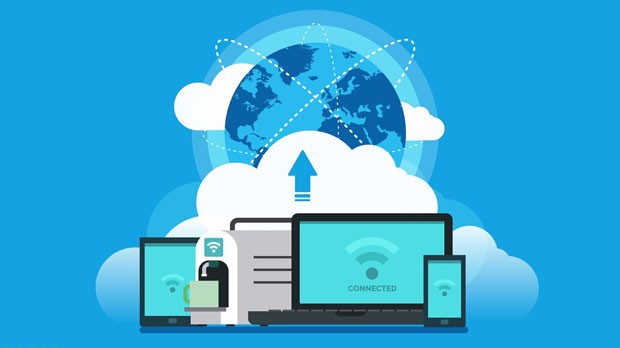When it comes to choosing the right proxy service for cross-border e-commerce, businesses face a crucial decision: ProxyEmpire or PYPROXY? Both of these services offer different advantages that may suit varying business needs. The choice between ProxyEmpire and PyProxy largely depends on the specific requirements of your e-commerce operations, such as speed, reliability, scalability, and geographical targeting. Understanding the strengths and limitations of each can help you make an informed decision that enhances your cross-border strategy. This article will provide a detailed comparison of both services and offer practical advice for selecting the best proxy provider for your business. Introduction to Proxy Services in Cross-Border E-CommerceCross-border e-commerce requires efficient handling of multiple challenges, such as managing a global supply chain, overcoming regional restrictions, and ensuring privacy and security for online transactions. One essential tool to ensure seamless operations is proxy services. Proxies act as intermediaries between a user's device and the web, enabling businesses to mask their actual IP addresses and access restricted content or perform automated tasks like web scraping, price tracking, and market research.There are several proxy providers in the market, but ProxyEmpire and PyProxy have garnered attention for their specific features suited to e-commerce needs. Both services offer distinct benefits, and understanding these can help e-commerce businesses optimize their cross-border operations.Understanding ProxyEmpireProxyEmpire is a well-established proxy service provider that caters to a wide range of needs. It offers a variety of proxies, including residential, data center, and mobile proxies. These proxies are often used for a variety of purposes, from bypassing geo-blocking to managing large-scale web scraping tasks. Let’s dive deeper into the features and advantages of ProxyEmpire for cross-border e-commerce.Key Features of ProxyEmpire1. Wide Range of Proxy Types: ProxyEmpire provides a comprehensive selection of proxies, including high-anonymity residential proxies, data center proxies, and mobile proxies. This makes it suitable for businesses that need to target specific regions or handle a variety of e-commerce activities. 2. Geographical Flexibility: ProxyEmpire has an extensive pool of IP addresses, allowing businesses to target various geographical regions effectively. Whether you're managing inventory across different countries or accessing international supplier databases, ProxyEmpire can provide you with the required IPs.3. Speed and Reliability: ProxyEmpire is known for its speed and reliability, which is crucial for businesses involved in fast-paced, time-sensitive tasks like online retail. Quick access to various e-commerce sites or competitor data helps businesses stay competitive.4. Customizable Plans: For growing e-commerce businesses, ProxyEmpire offers flexible pricing plans, which can scale with your needs. Whether you’re a small startup or a large enterprise, you can adjust your plan according to your usage and budget.Advantages of ProxyEmpire for Cross-Border E-Commerce- Geo-Targeting: ProxyEmpire’s large number of IP addresses allows you to perform geo-targeting and market analysis across various countries. This is particularly beneficial for understanding local pricing trends, consumer behavior, and regional competition.- Security and Anonymity: Privacy is a priority in e-commerce, especially when dealing with customer data. ProxyEmpire offers high anonymity, ensuring that your IP address remains hidden, reducing the risk of cyber-attacks or fraudulent activities.- Easy Integration: ProxyEmpire’s proxy services are easy to integrate into various e-commerce platforms, such as Shopify, Amazon, or eBay, making it easier for sellers to automate tasks, monitor inventory, or conduct competitor analysis.Exploring PyProxyPyProxy, on the other hand, is another strong contender in the proxy services market, especially for businesses looking for high-performance, reliable proxies at competitive prices. Let’s explore the core offerings of PyProxy and how it stacks up in the context of cross-border e-commerce.Key Features of PyProxy1. Performance: PyProxy offers high-speed proxies, optimized for businesses that require fast, uninterrupted access to websites and online stores. This is especially useful for e-commerce businesses that rely on real-time data scraping, such as tracking product availability, pricing, or sales trends.2. Wide Pool of Residential Proxies: Much like ProxyEmpire, PyProxy offers a large number of residential proxies that can be used for tasks requiring high anonymity and geolocation accuracy. These proxies are ideal for businesses that need to access localized content or gather competitor data from different regions.3. Affordable Pricing: One of PyProxy’s major advantages is its competitive pricing. For e-commerce businesses on a budget, PyProxy offers affordable rates without sacrificing performance, making it an attractive option for startups or smaller businesses.4. API Access for Automation: PyProxy allows businesses to integrate its proxy services into their automated systems through a user-friendly API. This is beneficial for businesses that want to scale their e-commerce operations without compromising the performance of their online tasks.Advantages of PyProxy for Cross-Border E-Commerce- Cost-Effectiveness: For businesses just entering the cross-border market or those looking to scale without significant investment, PyProxy’s affordability is a major selling point. You get reliable service without the hefty price tag associated with some other providers.- Speed and Efficiency: The performance of PyProxy is optimized for quick data retrieval, ensuring that businesses can access relevant e-commerce data swiftly. This is essential for operations like price comparison, product tracking, and customer sentiment analysis.- Global Coverage: While PyProxy may not offer as large a pool of IPs as ProxyEmpire, its residential proxy pool is still large enough to enable effective geo-targeting and global operations, especially in high-demand markets.Comparing ProxyEmpire and PyProxy for Cross-Border E-CommerceWhen it comes to choosing the right proxy service for cross-border e-commerce, both ProxyEmpire and PyProxy offer distinct advantages. Here is a side-by-side comparison:1. Proxy Types- ProxyEmpire: Offers a diverse range of proxy types, including residential, data center, and mobile proxies.- PyProxy: Primarily focuses on residential proxies but provides high performance in terms of speed and efficiency.2. Pricing- ProxyEmpire: Premium pricing but with a broader range of features and IPs.- PyProxy: More affordable, offering a budget-friendly solution for smaller businesses or startups.3. Performance and Speed- ProxyEmpire: Known for its fast, reliable service suitable for large-scale operations.- PyProxy: Also offers excellent speed but focuses more on efficiency for smaller-scale tasks.4. Geographical Targeting- ProxyEmpire: Strong geographical targeting with a wider selection of IP addresses.- PyProxy: Offers strong geo-targeting as well but with a smaller pool of IPs compared to ProxyEmpire.5. Integration and Automation- ProxyEmpire: Seamless integration with various e-commerce platforms, plus advanced automation features.- PyProxy: API access for integration into automated systems, offering great flexibility.Which is Best for Your Business?Ultimately, the choice between ProxyEmpire and PyProxy will depend on your business’s specific needs and budget. If you are running a larger-scale cross-border e-commerce operation with extensive geographical targeting, high-speed requirements, and need more diverse proxy types, ProxyEmpire is likely the better choice. However, if your business is smaller, on a tighter budget, or primarily requires residential proxies for performance and efficiency, PyProxy offers a highly cost-effective and reliable solution.In conclusion, both ProxyEmpire and PyProxy are strong options for cross-border e-commerce, each excelling in different areas. By carefully considering your business requirements and budget, you can select the right proxy service to enhance your global operations, automate processes, and remain competitive in the rapidly evolving e-commerce landscape.
Oct 24, 2025



































































